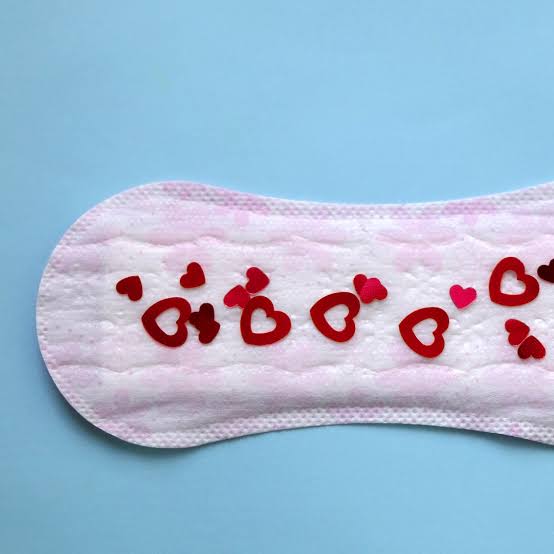Menstruation, commonly known as periods, is a natural process experienced by women. This article aims to provide you with a comprehensive understanding of periods, addressing topics such as their definition, common symptoms, menstrual cycle phases, management tips, and more.
What Are Periods?
Periods, also known as menstruation, refer to the shedding of the uterine lining that occurs approximately once a month in individuals with reproductive systems. It is a vital part of the menstrual cycle, which prepares the body for potential pregnancy.
Menstrual Cycle Phases
The menstrual cycle consists of several distinct phases that occur on a cyclical basis. These phases include:
- Menstruation: This phase marks the beginning of the cycle and is characterized by the shedding of the uterine lining, resulting in bleeding.
- Follicular Phase: During this phase, follicles in the ovaries begin to mature, preparing for the release of an egg.
- Ovulation: Ovulation occurs when a mature egg is released from the ovary and is available for fertilization.
- Luteal Phase: Following ovulation, the ruptured follicle transforms into a structure called the corpus luteum, which produces hormones to support a potential pregnancy.
- Pre-Menstrual Phase: If fertilization does not occur, hormone levels decrease, leading to the shedding of the uterine lining and the start of a new menstrual cycle.
Common Symptoms
Periods can be accompanied by various physical and emotional symptoms, which may vary from person to person. Understanding these symptoms can help individuals manage their periods effectively.
Physical Symptoms
Physical symptoms experienced during periods can include:
- Menstrual cramps or dysmenorrhea
- Bloating
- Breast tenderness
- Fatigue
- Headaches or migraines
- Back pain
- Acne breakouts
- Food cravings
Emotional Symptoms
Emotional symptoms associated with periods may include:
- Mood swings
- Irritability or anger
- >Anxiety
- Depression
- Difficulty concentrating
- Sleep disturbances
Period Management
Managing periods effectively involves choosing the right products, maintaining good hygiene practices, and finding ways to alleviate any discomfort experienced during menstruation.
Choosing the Right Products
When it comes to period products, there are various options available to suit individual preferences and needs. Some common choices include:
- Disposable pads
- Tampons
- Menstrual cups
- Period panties
Maintaining Good Hygiene
Maintaining good hygiene during periods is essential to prevent infections and promote overall well-being. Here are some hygiene tips to keep in mind:
- Change your pad or tampon regularly.
- Wash your hands before and after handling menstrual products.
- Clean your genital area with mild, fragrance-free soap.
- Avoid using scented products, as they can cause irritation.
Dealing with Cramps
Menstrual cramps, also known as dysmenorrhea, can be managed through various methods, including:
- Applying heat to the lower abdomen
- Taking over-the-counter pain relievers
- Engaging in light physical activity
- Trying relaxation techniques or yoga
Tracking Your Period
Tracking your period can help you understand your menstrual cycle better, anticipate when your next period will arrive, and identify any irregularities. Here are some ways to track your period:
Understanding Your Cycle
Understanding the length and regularity of your menstrual cycle can be achieved by tracking the start and end dates of your periods over several months. This information can help you estimate when your next period will occur.
Using Menstrual Tracking Apps
Menstrual tracking apps can simplify the process of tracking your period. These apps allow you to record your cycle dates, symptoms, and other relevant information, providing insights into your menstrual patterns.
Period Myths and Misconceptions
There are several myths and misconceptions surrounding periods. Let’s debunk two common misconceptions:
Myth 1: You Can’t Exercise During Your Period
Contrary to popular belief, exercise can actually help alleviate period symptoms. Engaging in physical activity releases endorphins, which can improve mood and reduce pain.
Myth 2: PMS is Just a Figment of Imagination
Premenstrual Syndrome (PMS) is a real condition that can cause a range of physical and emotional symptoms. It is important to acknowledge and address the impact PMS can have on individuals.
Periods and Mental Health
Periods can have an impact on mental health due to hormonal fluctuations. Two common conditions related to periods and mental health are Premenstrual Syndrome (PMS) and Premenstrual Dysphoric Disorder (PMDD).
Premenstrual Syndrome (PMS)
PMS refers to a combination of physical, emotional, and behavioral symptoms that occur in the days leading up to menstruation. Symptoms can include mood swings, irritability, bloating, and fatigue.
Premenstrual Dysphoric Disorder (PMDD)
PMDD is a more severe form of PMS that affects a smaller percentage of individuals. It is characterized by intense mood swings, severe depression, anxiety, and irritability.
Period Products
There is a wide range of period products available to individuals, catering to different preferences and needs. These products can be broadly categorized as disposable and reusable options.
Disposable Products
Disposable products, such as pads and tampons, are widely accessible and convenient. They are designed for single-use and are typically made from absorbent materials.
Reusable Products
Reusable period products, such as menstrual cups and period panties, are eco-friendly alternatives to disposables. These products can be washed and reused, significantly reducing waste.
Periods and Environment
Considering the environmental impact of period products is crucial. Sustainable options are available for individuals looking to minimize their ecological footprint.
Sustainable Options
Sustainable period products include menstrual cups, reusable cloth pads, and period underwear made from organic or biodegradable materials. These options help reduce waste and are more environmentally friendly.
Reducing Plastic Waste
Disposable period products often contribute to plastic waste. Opting for reusable alternatives can significantly reduce the amount of plastic waste generated from periods.
Periods Around the World
Period experiences and perspectives vary across different cultures. Understanding the cultural context and challenges surrounding periods can promote inclusivity and awareness.
Cultural Perspectives
Different cultures have diverse attitudes and practices related to periods. Some cultures have specific rituals or traditions associated with menstruation, while others may hold taboos or stigmatize menstruating individuals.
Period Poverty
Period poverty refers to the lack of access to menstrual products and adequate sanitation facilities. It is a global issue that affects individuals who cannot afford or readily access period products, leading to potential health risks and hindering education.
Periods and Sex
Understanding how periods and sex can coexist is essential for individuals and their partners. Open communication and practicing safe sex are crucial during menstruation.
Intimacy During Periods
Engaging in sexual activity during periods is a personal choice. Some individuals may feel comfortable and experience heightened pleasure, while others may prefer to abstain. Open communication with your partner can help navigate intimacy during this time.
Safe Sex Practices
Using barrier methods, such as condoms, can prevent the transmission of sexually transmitted infections (STIs) during menstruation. It is important to prioritize safe sex practices and maintain good hygiene.
Conclusion
Periods are a natural part of life for many individuals, and understanding them is crucial for overall well-being. By debunking myths, managing symptoms, choosing the right products, and promoting awareness, we can foster a more inclusive and informed society. Remember that each person’s period experience is unique, and it’s essential to support and respect individuals during this natural process.






